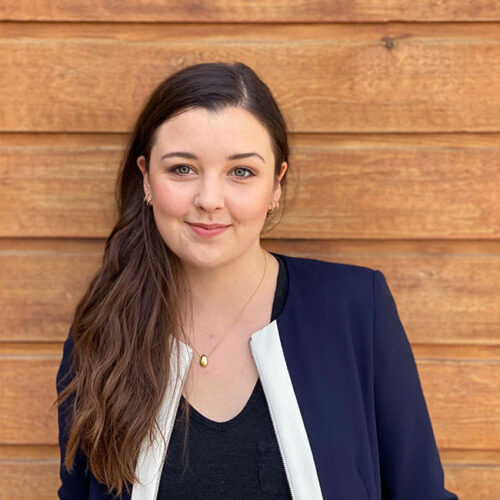Image courtesy of Alex Dong.
Amidst a mess of flour and dough in a small San Francisco apartment, one can find 2022 Rhodes Scholar Kate Pundyk baking away, having set stacks of research journals and books on technology policy aside to try out a new recipe. While STEM and the humanities often find themselves on opposite ends of the spectrum, Pundyk found her calling in the intersection of technology and social policy through a long-winding path with many different research experiences and universities.
Pundyk first left her home in rural Crowsnest Pass in Canada at seventeen-years-old to live in Hong Kong. During her stay, she witnessed firsthand how the citizens stood up for their rights during the Umbrella Revolution. “[I] realized how powerful activism can be, even in situations where it feels like the opponent is a very large and very powerful entity,” Pundyk said. This experience abroad quickly became a turning point in her life, motivating her continued work in social justice and activism.
Pundyk started her college education as a political science student at Wellesley College following her two-year stay in Hong Kong. She found herself traveling to Cambridge each semester to take classes at MIT. With her time split between taking more humanities-oriented classes at Wellesley and technology-focused classes at MIT, the intersection between the two came about naturally. “It was impossible to go from any of the foreign policy, world politics courses that I kind of gravitated to, and then go to my cybersecurity class at MIT and not think about how those two overlapped,” Pundyk said.
Pundyk became involved in the MIT Little Devices Lab during her time at Wellesley, which focuses on creating affordable medical technology for people in disaster or low-resource settings. As a technology policy researcher and political science student, she was primarily involved in researching how access to medical devices depended on financial stability. For example, she investigated how big pharma’s corporate nature affects engineering and technology access, preventing low-income people from getting the medical care they need.
After two years at Wellesley, Pundyk decided to return to Canada and work in the Office of the Premier in Alberta. With just two years of undergraduate education under her belt, Pundyk was adamant about pursuing her interests and creating change in fields that she believed mattered, taking part in progressive campaigns. Later in 2019, Pundyk transferred to Yale to pursue her interest in technology policy and its role in human rights abuses and equity.
At Yale, she found herself involved in a host of different activities and organizations. One of the most notable was reporting for the Sci-Tech desk at the Yale Daily News (YDN). Having worked in government, Pundyk knew that the ability to communicate technical subjects to lay audiences was lacking in many politics-oriented communities, and this was something she was hoping to work on at the YDN. With the COVID-19 pandemic, it was especially important for her to easily communicate the newly discovered science and engineered technology to a broader audience.
While the pandemic didn’t alter the course of her education too much, it became clear to Pundyk that she was following the right path. “COVID highlighted the cleavages in our society that urgently need to be focused [on]. [It] clarified that I’m making the right choices and going for a career that centers human rights and tries to build up other voices that might be left out of the discussion,” she said.
In addition to the YDN, Pundyk started working with the Yale Genocide Studies Program on a project known as Mass Atrocities in the Digital Era (MADE). As part of this project, she brought a technology-oriented angle to the research, focusing on how technology plays a role in bringing about human rights injustices, specifically looking into the accountability of human rights abusers, memorialization of victims, and prevention of future atrocities.
For the upcoming fall semester, Pundyk will continue studying the intersection of social policy and technology at Oxford during her Rhodes scholarship, pursuing a Master of Science degree in social data science and a Master of Philosophy degree in socio-legal research. She is looking forward to moving home to Canada after graduating from Oxford. “[It] was less about any individual feat and more a confluence of a bunch of good things happening in a row and being surrounded by good people who built me up,” Pundyk said.

